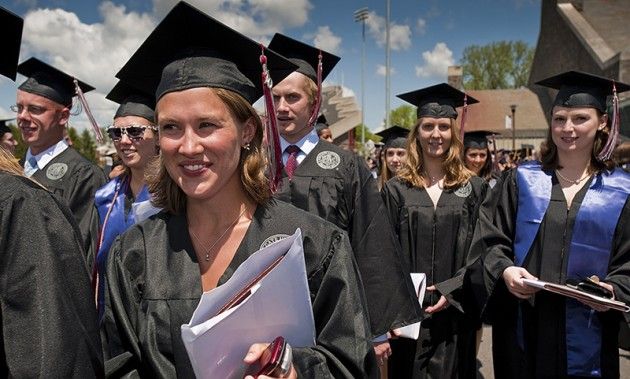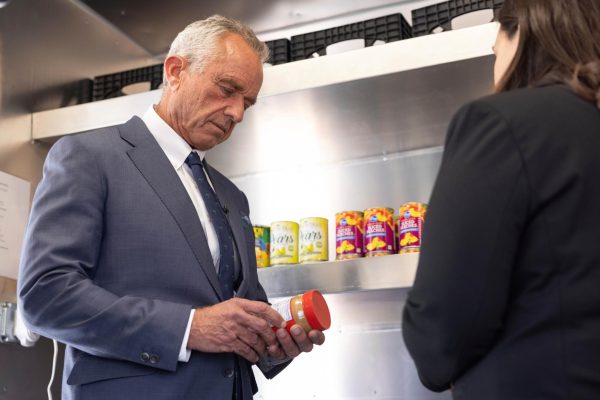Believing In The American Dream: For Love and Money
In honor of Monday’s Labor Day, I decided to contemplate work. And the economy. And, of course, Colgate.
I found it ironic that when I walked into the Career Services office earlier this week, the front page of the day’s Syracuse Post-Standard sitting on a table reminded me glaringly that the job market is not on the upturn. I laughed, but no one else in the room seemed to find the humor in it that I did.
What was discussed, however, in my appointment was that I did not have many connections in the field into which I looking to enter. Well, I wanted to say, that’s why I am paying to go to this school.
Unfortunately though, I wondered for the slightest moment if that is not enough.
The July 6 New York Times article on the elusiveness of the American Dream featuring a recent Colgate graduate that quickly circulated around Facebook did nothing to dispel my repressed fears that the economy is not going to get better by the time I graduate. Even if it does not, somehow the fact that my diploma bears the name “Colgate” will matter; this school is not just any school. I have been told over and over in various classes here that we are the crème de la crème – the top one percent of the nation’s best and brightest. That means something; it has to mean something.
So when I hear someone not from Colgate say, “Does it really matter where you get your undergrad from anyways?” I want to say that I sure hope so, that I’m banking on the fact that it actually does, because that is what this education is: a financial investment project that I hope will have a significant return. Whenever Forbes posts their list of greatest earning graduates from particular schools, I am proud (and a bit relieved) that Colgate continually ranks near the top.
But is this mid-career median salary of $120,000 only for the pre-professional and Wall Street-bound students? Probably. Money spent on my English major seems like its headed down the drain. But I do enjoy telling myself I will get there someday too and I would like to think I will do so without my family’s resources but rather with my own hard work, dedication and, of course, talent.
I told myself this a lot during the summer months. My internship over break was not in my hometown and I would come back each night trying to find something to fill my time, as I could not hang out with my friends.
Flipping through the TV channels was mind-numbing, so I attempted to recapture my youthful love of reading. All my life I have loved books. I ate them up ever since I learned the alphabet; I even remember one of my first take-home books from kindergarten: Buck-Buck the Chicken. (Yes, I am from Wisconsin. Did you know I was raised on a farm?)
To stay abreast of the Colgate scene, I struggled through the first-years’ required reading but decided it was too much work for summer. Even picking up an “easy-read” chick-lit novel was just too boring. And that’s when I realized I did not want to be reading anything – I wanted to be writing something.
But oh wait. That’s the career that does not pay.
“I just want you to know that it may be hard to make it in this field,” my Spear House counselor advised during my meeting. “What’s your Plan B?”
“Well, um, waitressing?” I answered.
She seemed a little surprised, and I’m not sure if she could tell I was joking or not. But I was half serious. If waitressing is what it takes for me to “get by” while I see the after-effects of majoring in something other than business or finance in college, so be it. I know I could never be happy doing those: I could do it, but I do not want to. If that $120,000 is only made through following a path I hate, I do not think I could do it. I would much rather be following my dreams than making money (I think. I might have to eat my words – literally – in a year or two).
Does this go against the capitalist American way? Perhaps instead it is just an example of my extreme idealism, my continual belief that life is, in fact, fair and that by going to school here and then doing what I love will lead to money – wait, I mean happiness.
I probably will, in actuality, just go home and bum around my parents’ place after graduation if I can not find a job, but I would still like to imagine that I can make it out on my own with my Colgate degree in hand.
But if I live in a box on a dirty New York City side street, my optimism tells me that at least I’ll be saving money on rent. After all, it will make for a great rags-to-riches story when my good grades and Colgate Connections finally pay off.





